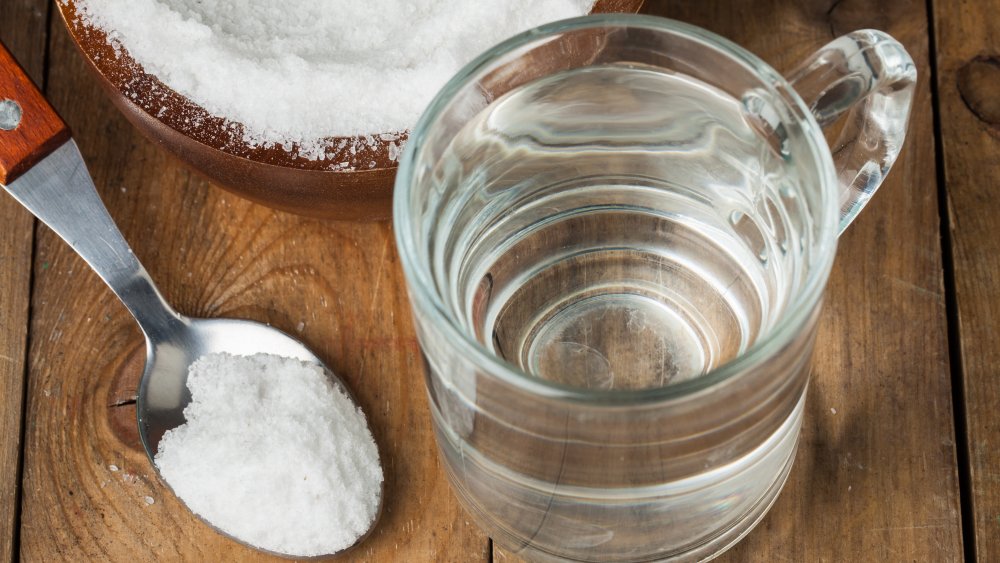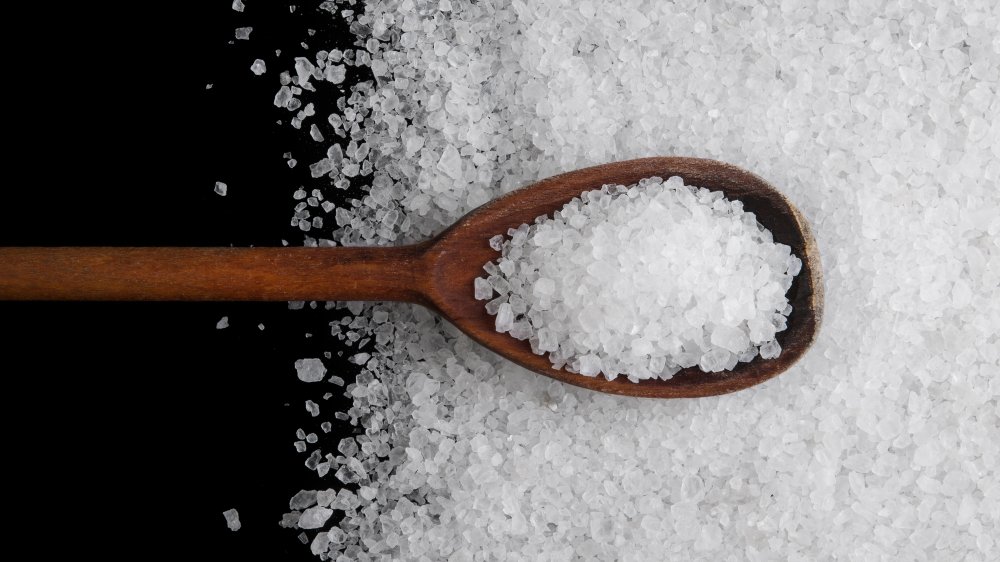What Happens To Your Body When You Drink Too Much Salt Water
Per the Hawaii Pacific University Oceanic Institute, if you took all the salt in the world's oceans and coated every continent with it in dry form, that salt layer would be five feet deep. Presumably, the ground would also suffer from hypertension. The salty broth that covers the Earth accounts for 97 percent of the planet's water supply. Since humans need both salt and water to survive, you might think evolution would have done homo sapiens a solid and given them the ability to drink the majority of the world's water in large quantities without incurring serious health problems. But things didn't quite turn out that way.
An a-salt on your kidneys
When consumed in moderation, salt does your body good. In fact, you can't live without it. Per the University of Hawaii resource, Exploring Our Fluid Earth, salt, also known as sodium chloride, is the human body's main source of sodium, which is crucial to nerve and muscle function and the regulation of fluids. Meanwhile, chloride provides a necessary electrolyte that helps regulate the pressure and pH of blood and produce stomach acid. Just don't go around gobbling the stuff like a shameless moose licking rock salt off of cars in Canada because, as you've probably read or heard ad nauseam, too much salt will increase your chances of having a stroke.
Water is obviously another necessity. And much like salt, you can consume too much of it — so much, in fact, that the cells in your body could grow turgid and burst or you could even become comatose from brain swelling. But when you combine water and salt in the form of sea water, consuming too much actually dehydrates you. The National Oceanic and Atmospheric Administration (NOAA) says that "about 3.5 percent of the weight of seawater comes from the dissolved salts." Such a high concentration strains the kidneys. The NOAA explains that in order to eliminate the excess salt, you would have to pee more water than you drink. If you kept guzzling the stuff, you would ultimately die of thirst.

